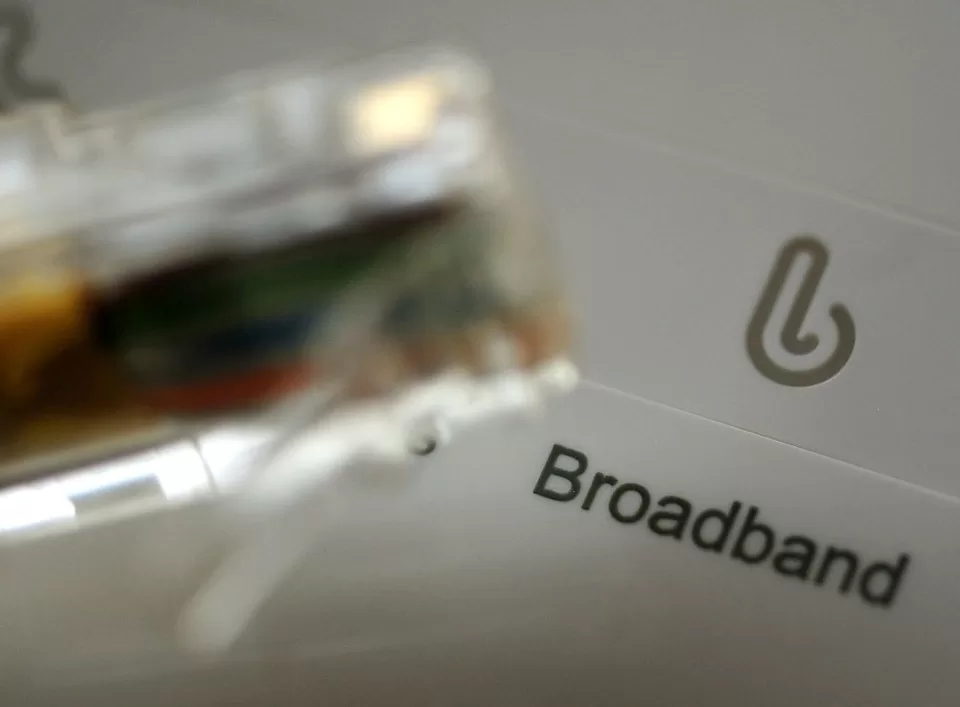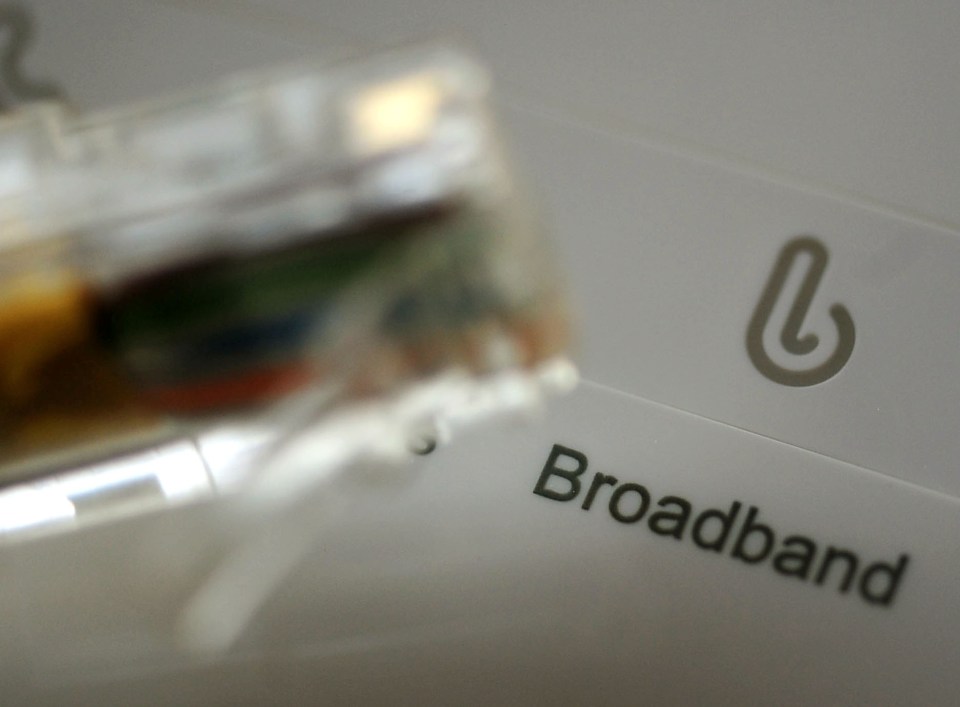HOUSEHOLDS could save as much as £235 a year on broadband mobile and TV bills with an easy move.
Consumer brand Which? has found that switching your provider can save you some big cash.
According to its research, it found that on average, out-of-contract TV and broadband customers could save £160 by switching.
Sky customers surveyed saved most – a bumper £235 a year on average by switching to a better deal.
TV and broadband customers who haggled with their current provider rather than switching still saved £117 on average.
Which?’s study also found there were decent savings for broadband-only customers who switched providers, with the average being £105.
Customers switching from BT, Sky or Virgin Media saved even more – up to £165 on average for VM customers.
Broadband customers who haggled saved £55 per year, with Virgin Media customers seeing the biggest average saving of £81.
There was less of a difference in savings between mobile customers who switched and those who haggled.
Mobile customers at the end of their contract saved £67 on average by switching and those that haggled saved a slightly lower £61.
Vodafone customers saved £146 by switching, more than twice the £67 average.
EE and O2 customers also saved an average of £122 and £132, respectively.
When it came to haggling, it was EE customers who stood to save the most, at £101 a year on average.
Natalie Hitchins, Which? Head of Home Products and Services, said: “Our latest research shows out-of-contract broadband, TV and mobile customers can save a substantial amount of money by switching providers or haggling with their current one – and that most people find the process easy.
“With many telecoms providers already adopting Ofcom’s ban on unpredictable mid-contract price hikes before it officially comes into effect in January, consumers can more easily compare deals and should feel empowered to switch and potentially save hundreds of pounds.”
Results of the survey
The consumer champion surveyed more than 5,000 customers whose broadband, combined broadband and TV or mobile phone contracts had ended in the past 12 months, asking if they had switched or haggled, and how much they had saved on their bills in the process.
Which?’s research found that most consumers found the switching process easy.
This was the case for 75% of broadband, 73% of mobile customers, and 55% of broadband and TV customers.
The survey found that price was the most common reason for switching.
But people also then benefitted from better customer service, faster download speeds and better connections.
Three in 10 broadband switchers said customer service was getting better after switching, while just 6% reported it getting worse.
For those that changed mobile networks, a third said customer service improved and three per cent said it got worse.
For download speeds, nearly four in 10 broadband customers said they got faster after switching, versus one in eight who said they got slower.
For mobile network switchers, a quarter found they improved versus nine per cent who reported they got worse.
Around four in 10 got a more reliable broadband connection after switching, while one in eight found it got worse.
Mobile network reception improved for half of the switchers but got worse for one in seven.
How to switch
Switching providers is far easier now because as of September, customers only need to contact their new provider to switch.
This makes it easier to move to a cheaper deal without your current provider trying to convince you to stay, even if you can find a better offer elsewhere.
Since 2015, people have been able to switch between phone and broadband providers on Openreach’s network – like BT and Sky – by letting their new provider handle the switch.
However, if you were switching to or from a different network, such as Virgin Media, which uses its own private network, you had to contact your existing provider to arrange the switch as well.
Ofcom‘s new “One Touch” rules, which started last month, have changed this.
Now, landline and broadband customers on any network only need to contact their new provider to make the switch.
Under the new rules, customers won’t have to pay notice-period charges beyond the switch date, so they will no longer be paying for the old service after the new one starts.
Plus, providers must also compensate customers if they experience issues with the switch or are left without service for more than one working day.
However, the exact amount of compensation you’ll receive will be issued on a case-by-case basis.
The new rules bring broadband switching in line with mobile switching.
Since 2019, mobile phone customers have been able to “text to switch” without the hassle of having to call their current network.
How one-touch switch works
The new “One Touch” process is designed to make it easier to switch providers and get a faster package, a cheaper deal, or better customer service.
It will also make it quicker – just one day when this is technically possible.
There are three steps to complete the switch:
- A customer will contact their chosen new provider and give their details.
- The customer then automatically receives important information from their current provider, including any early contract termination charges they may have to pay, and how the switch may affect other services the customer has with the company.
- If the customer wants to go ahead, the new provider will then manage the switch.
The new process means that customers no longer need to notify their current provider 30 days before switching.
Instead, the operators handle all billing and activation dates in the background.
CUT YOUR TELECOM COSTS
SWITCHING contracts is one of the single best ways to save money on your mobile, broadband and TV bills.
But if you can’t switch mid-contract without facing a penalty, you’d be best to hold off until it’s up for renewal.
But don’t just switch contracts because the price is cheaper than what you’re currently paying.
Take a look at your minutes and texts, as well as your data usage, to find out which deal is best for you.
For example, if you’re a heavy internet user, it’s worth finding a deal that accommodates this so you don’t have to spend extra on bundles or add-ons each month.
In the weeks before your contract is up, use comparison sites to familiarise yourself with what deals are available.
It’s a known fact that new customers always get the best deals.
Sites like MoneySuperMarket and Uswitch all help you customise your search based on price, allowances and provider.
This should make it easier to decide whether to renew your contract or move to another provider.
However, if you don’t want to switch and are happy with the service you’re getting under your current provider – haggle for a better deal.
You can still make significant savings by renewing your contract rather than rolling on to the tariff you’re given after your deal.
If you need to speak to a company on the phone, be sure to catch them at the right time.
Make some time to negotiate with your provider in the morning.
This way, you have a better chance of being the first customer through on the phone, and the rep won’t have worked tirelessly through previous calls which may have affected their stress levels.
It pays to be polite when getting through to someone on the phone, as representatives are less inclined to help rude or aggressive customers.
Knowing what other offers are on the market can help you to make a case for yourself to your provider.
If your provider won’t haggle, you can always threaten to leave.
Companies don’t want to lose customers and may come up with a last-minute offer to keep you.
It’s also worth investigating social tariffs. These deals have been created for people who are receiving certain benefits.
Rule changes
The findings come ahead of Ofcom’s ban on unpredictable mid-contract price hikes which comes into effect in January 2025.
Telecom firms have faced criticism for implementing mid-contract price rises on fixed contracts that exceed inflation over the past four years.
Due to clauses in contracts, providers are allowed to impose annual increases, typically in April.
These hikes are linked to either the Consumer Price Index or Retail Price Index inflation rate, which has surged during the cost-of-living crisis.
As a result, millions of customers experienced increases of up to 8.8% this year, adding as much as £50 to their bills.
However, from January 17, 2025, Ofcom will require telecom firms to display mid-contract price increases in pounds and pence.
The rules are designed to protect customers by ensuring they know exactly how much their contract will increase before they sign up.
Instead of being linked to inflation, which can fluctuate, the price rises will be clearly stated in pounds and pence.
However, some experts have slammed the rule change for “unfairly” impacting customers on cheaper contracts.
Earlier this year, The Sun revealed that millions of mobile and broadband customers on cheaper contracts will be hit by huge bill rises under the new mechanism.
Do you have a money problem that needs sorting? Get in touch by emailing [email protected].
Plus, you can join our Sun Money Chats and Tips Facebook group to share your tips and stories

